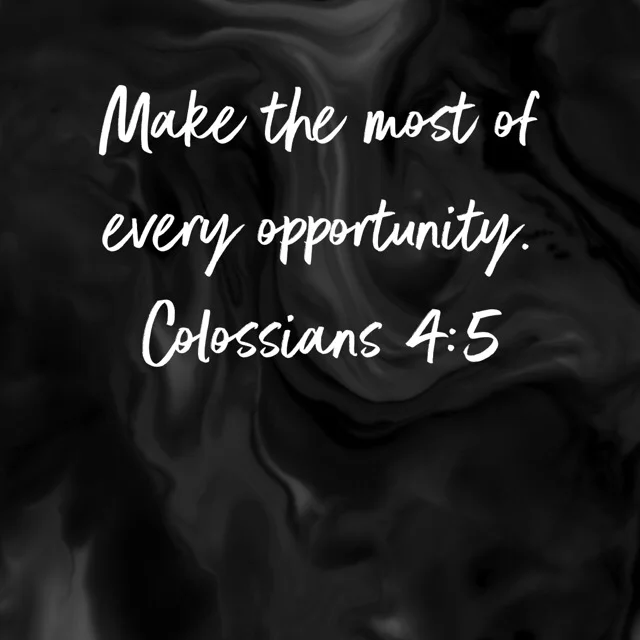Hamburger Helper
Does Hamburger Helper count as a casserole? If so, the first time I tasted a casserole was my junior year of college.
I suffered a bit of culture shock when my brand-new husband and I moved to a southern city in Virginia.
“What can I put you down for on the meal sign-up for the Smiths?” (I have withheld the real name of the family so that they will not remember this incidence . . . hopefully.)
The blank stare I gave in return to the sweet woman who oozed hospitality caught her off guard.
“The women’s ministry—the one you’ve been attending for a while now—provides two weeks of home-cooked meals for families with newborns. Which night do you want to take something over there? And what do you plan to cook so we’re not all bringing the same meal?”
Did I want to help the Smiths? Could I understand their need for care with a new baby? Absolutely! But I had been married for maybe a month. For the past five years, I had been on a tight, poor-college-student budget, which meant I survived on spaghetti, ramen, and pb&js. Because Scott ate none of these, I was trying—and failing—to learn how to cook other foods. (Let’s be honest, I expected to have my fully fledged adult status revoked by the powers that be at any moment.)
Back to the awkward confrontation/meal sign-up . . .
My continued silence as I racked my brain for what I could cook for this family must have made Mrs. Hospitality uncomfortable. “What if I just put you down for a casserole on Saturday? Maybe if you could just tell me what kind of meat you plan to put in it?”
That’s when the dish my best friend introduced me to in college popped into my head. “Is ground beef, okay?”
At church the next Sunday, several of the ladies were talking about Baby Smith—his cute dimples and tiny toes. “I almost dropped all the containers I was carrying when I saw that precious face!”
Uh-oh. I laughed along and then casually asked, “What do you mean, all the containers? What all did you take over there?”
“Oh, not much, just a beef brisket, green bean casserole, mashed potatoes and gravy, and a coconut cake.”
No wonder Mr. Smith had looked so stricken when I handed him my one measly dish of Hamburger Helper. To his credit, he recovered quickly and pasted on a smile. Being an introvert, I left without even a glimpse of the baby.
I would like to say I’ve improved over the years, but that would be a lie. I never could get the hang of it. I tried different recipes, but they were too involved, or I didn’t have the right dishes/tools, or they sloshed all over the place during the car ride, or I found out later that the family didn’t eat whatever food I had brought over. Epic fail after epic fail. I even considered spontaneous trips out of town to avoid being put on another meal sign-up.
Fast-forward 20 years (yes, you read that right): Scott was being released from the hospital. Knowing we were headed home, a friend asked if he and his wife could bring us dinner that night. “What do you guys want from Outback?”
Stunned, at first, I couldn’t respond. Heading off any concern, he said, “Come on, you guys deserve it. What should I order for dinner?”
Dinner was delicious, and we were happy to be home, but release from the hospitality nightmare I had subjected myself to for the past 20 years was like a sip of water in the desert.
So, if you, like me, feel like you don’t measure up, like you are somehow lacking in the hospitality department, please hear this good news: It’s okay. You have permission to order a pizza and wings or a bucket of chicken with sides from a local chain, or to pick up a rotisserie chicken, baguette, and ready-made salad mix from the grocery store.
This is how we serve others in crisis, isn’t it? We bring them a meal. Of course, we want to provide comfort for a friend who’s hurting, but is a meal sign-up the only way to serve?
There are at least five other ways we can be a blessing to our family and friends who are struggling with a difficult situation.
Pray.
Wow! Aren’t you glad you took the time to read this? Profound, right?
But how many times have we said we would pray for someone and then forgot . . . or got busy (busy making a casserole?). Prayer is never the least we can do; it’s the best way to serve and care for others.
Prayer is our first priority, not our last resort.
“Share each other’s burdens, and in this way obey the law of Christ.” ~ Galatians 6:2
Be present.
Grief and pain can make us uncomfortable. We may be tempted to either run away from it or to fix it. Acknowledging our friend’s pain is a gift to them. We don’t need to fix it; we need to bear witness to it.
In our desire to show love to others, we tend to do and to say—to serve and to speak words of love. But sometimes the best way to love is just to be, to be present.
“Rejoice with those who rejoice, weep with those who weep.” ~ Romans 12:15
Make it personal.
The friend we want to serve is uniquely created.
Questions to ask ourselves: What’s their situation? Do they need food delivered? Do they need a coffee refill? Do they need errands run? Do they need help taking care of their kids or pets? Do they need yard maintenance or a house cleaning?
What’s their temperament? How do they react in difficult situations? I tend to freeze, so I am so grateful for friends who can act on my behalf in the moment.
What kind of processor are they? Do they process their feelings internally or externally? We want to be sensitive to those who need time alone to think through what’s happening . . . and available to listen to those who want to talk it through.
Use your pain.
Not only are we being a friend to someone who is uniquely created, . . . we are unique in the way we were created and in our experiences.
For example, I know from experience that losing a parent with Alzheimer’s is a kind of double grief, since there is a grieving that happens as the parent changes into a person who’s unrecognizable from the person they were; plus, there’s the loss of the relationship when they pass away.
“There have been some hard things in my life, of course, as there have been in yours. And I cannot say to you, I know exactly what you’re going through, but I can say that I know the One who knows.” ~ Elisabeth Elliot, Suffering Is Never for Nothing
“Jesus saw that the disciples were struggling against the storm in the middle of the lake . . . ‘Don’t be afraid,’ he said. ‘Take courage! I am here!’” ~ Mark 6:50
That’s the God Who knows our pain and the pain our friends are suffering.
Our tendency may be to ignore our pain: to stuff it down so deep maybe we’ll forget about it. That never works though, does it? It leaks out around the edges and poisons us from the inside. But if we take our pain to God to heal us and make us whole again, God can use our pain so we can minister to others.
Pursue.
Always start with questions: “How are you feeling? How can I pray for you?”
These are questions that are easy to brush off. So, be prepared with follow-up questions. “How has this (situation) affected your sleep/appetite/ability or desire to work? How has this affected your spouse (or other loved ones)?” Be sensitive (keeping in mind their temperament and processing type), but gently try to draw them out. We all want to be seen and understood in our pain.
“Do you think seeing a counselor would be helpful?” (We all need to talk to someone trained to help us process our thoughts and feelings.)
“Would you like some help in finding a support group?” (No one can know “just how we feel,” but it can be helpful to be reminded in a group that we are not alone in the situation we’re going through.)
For loss, specifically: “What’s something you would want others to know about (your loved one)?” Our friends may feel that to spare their feelings, we are tiptoeing around even the mention of their loved one’s name.
“Can I share a story with you about (your loved one)?” If you have stories, share them. Hearing sweet stories about the one we’re missing is like salve in a wound.
For all other painful situations: “Do you want to talk about it . . . or do you want to be distracted from it?” When I was going through a difficult time, my friend asked this question several times while she stayed with me for a few days. Sometimes, she listened and helped me process as I talked; sometimes, we watched a movie. She was there for whatever I needed in the moment.
“Can I take you to coffee/lunch? Do you want to go shopping/to a movie/to throw axes?” (Whatever is needed in the moment is an option!)
We can make ourselves available to our friends in pain, but we also need to be patient. We don’t want to offer unsolicited advice that they may not be ready to hear. When they ask, we can be ready with God’s truth to help them process.
So, if you want to do more than drop off Hamburger Helper, join me in practicing these ways to care for our hurting friends.
This is a recap of a breakout session I taught recently at a women’s conference.







